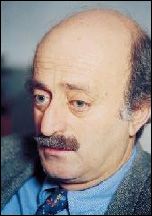 |
| Vol. 1 No. 12 | December 1999 |
According to the Taif Accord ratified by Lebanon's parliament in 1989, parliamentary elections are to be based upon the division of the country into six governates (muhafazat). However, these stipulations are being overruled by Syria for the third time in advance of Lebanon's parliamentary elections next year. The Lebanese cabinet approved a new electoral law in violation of the Taif Accord after weeks of consultation with Major General Ghazi Kenaan, the head of Syrian intelligence in Lebanon, and Bashar Assad, the son of Syrian President Hafez Assad who oversees Syrian policy in Lebanon.
Syrian officials were reportedly outraged during the summer of 1998 when 40% of the government-backed candidates in Lebanon's municipal elections were defeated. Prime Minister Rafiq Hariri had erroneously assured them that allowing semi-free elections at the local level would bolster Lebanon's democratic credentials while affording opposition candidates little opportunity for political gains. Syria appears resolved to eliminate the possibility of such surprises during next year's parliamentary elections.
The new law divides the North Lebanon governate into two districts in order to dilute the electoral prospects of the Lebanese Forces (LF) party and ensure the election of Syrian allies such as Agriculture Minister and former militia warlord Suleiman Franjieh. Bsharri, a predominantly Maronite Christian area which strongly supports imprisoned LF leader Samir Geagea, was combined with Akkar and Minyeh-Dinnieh (both predominantly Sunni Muslim areas) to form one district despite the fact that these areas are not even geographically contiguous. Candidates supported by Bsharri residents will almost certainly be defeated by pro-Syrian Christian candidates relying on support from Muslim voters in Akkar and Minyeh-Dinnieh. The result, said MP Nayla Mouawad, "prevents Bsharri from having any tangible say in politics."
 |
| Walid Jumblatt |
The governate of Beirut will be divided into three districts in order to reduce the electoral power of former prime minister Rafiq Hariri (he will still be elected, but his bloc of supporters will diminish considerably). The two governates in south Lebanon will be joined together into a single district, which will enhance the electoral power of parliament speaker and Amal militia leader Nabih Berri and his allies over rival candidates supported by Hezbollah.
Interestingly, nearly all members of the cabinet, including Prime Minister Selim al-Hoss, expressed their opposition to the new electoral law at one time or another. The Head of the Shi'ite Higher Council, Sheikh Mohammed Mehdi Shamseddine, and Sunni Mufti Sheikh Mohammed Rashid Qabbani both called the law a violation of the Taif Accord. Nevertheless, at Syria's urging, the Lebanese cabinet collectively ratified the law and Information Minister Anwar Khalil declared it "the duty and responsibility of each minister to defend it."
Beirut MP Najah Wakim has declared that he will seek to challenge the law before Lebanon's Constitutional Court, but this action requires the signatures of at least 10 MP's willing to challenge Syria's fiat. So far only two--Wakim and Sidon MP Mustafa Saad-- have declared a willingness to do so.
Though it may be impossible to block implementation of the new electoral law, many in Lebanon are vocally urging the government to at least desist from overt manipulation of the process on election day. Even the relatively pro-government Daily Star published the following appeal:
Ministers should be put on notice that they will not be permitted to "buy" votes, either by lavishing state funds on hotly contested districts or by having their allies literally put cash in hands. State-run media such as the National News Agency and Tele-Liban must be reminded that they are not cheerleaders: their job is to provide news and information without trying to influence voter preferences. And security forces are just that: using them to intimidate voters and/or embarrass candidates would be an appalling transgression against the norms of democratic decency, so Hoss needs to prohibit their misuse ahead of time.
� 1999 Middle East Intelligence Bulletin. All rights reserved.